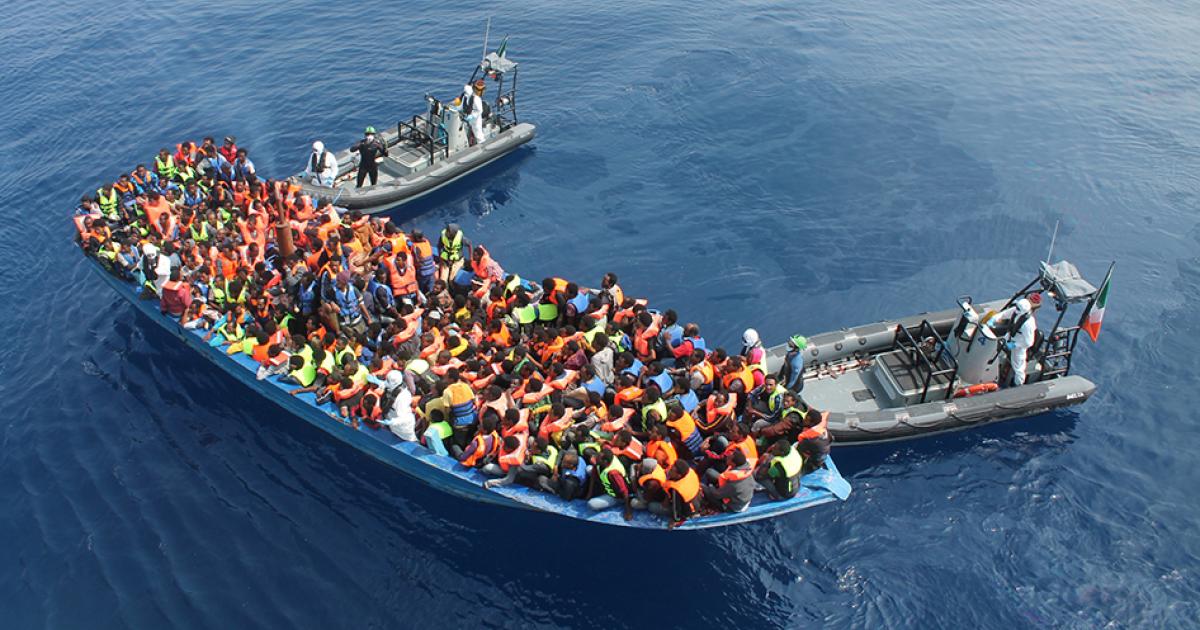The main rights and obligations concerning migrants attempting to cross the sea clandestinely are framed by the following legal norms:
The right to leave any country, including his own and its limits
The 1948 Universal Declaration of Human Rights provides that:
“Everyone has the right to leave any country, including his own, and to return to his country” (Article 13. (2)). Article 5 of the 1965 International Convention on the Elimination of All Forms of Racial Discrimination provides that state parties undertake to prohibit and to eliminate racial discrimination in all its forms and to guarantee the right of everyone, without distinction as to race, colour, or national or ethnic origin, to equality before the law, notably in the enjoyment of [c, ii)] the right to leave any country, including one’s own, and to return to one’s country.”
Article 12 of the 1966 International Covenant on Civil and Political Rights reaffirmed this right but with limitations:
- Everyone shall be free to leave any country, including his own.
- The above-mentioned right[s] shall not be subject to any restrictions except those which are provided by law, are necessary to protect national security, public order (ordre public), public health or morals or the rights and freedoms of others, and are consistent with the other rights recognized in the present Covenant.
- No one shall be arbitrarily deprived of the right to enter his own country.
It is thus difficult to say what is the exact rule in international law defining the right to leave any country, including ones own. Nevertheless we can observe that several Non-EU States on the Southern shores of the Mediterranean punish undocumented exit from their territory (for example Tunisia and Algeria) and criminalise assistance to this practice.[1] Furthermore, neither the Universal declaration nor international customary law establish a right to enter another State, and as such the right to exit remains paradoxical and incomplete. Immigration States maintain restrictions on entry and have the right to “intercept” migrants at sea within the limits of their territorial waters or contiguous zone to prevent them from entering without mandatory documents. Furthermore, in exceptional circumstances, a “right to visit” may be exercised by a State on a foreign vessel. In particular, the supposed lack of flag of boats used by migrants crossing the sea clandestinely is the main basis allowing states to exercise interception in the high seas.
{Whilst international law does not provide a comprehensive definition of “interception”, the UNHCR has sought to define the practice as follows:
“(…) interception is one of the measures employed by states to:
(i) prevent embarkation of persons on an international journey;
(ii) prevent further onward international travel by persons who have commenced their journey; or
(iii) assert control of vessels where there are reasonable grounds to believe the vessel is transporting persons contrary to international or national maritime law; where, in relation to the above, the person or persons do not have the required documentation or valid permission to enter; and that such measures also serve to protect the lives and security of the travelling public as well as persons being smuggled or transported in an irregular manner.”}
{“From a jurisdictional perspective, ships sailing on the high seas are subject to the exclusive jurisdiction of their flag state with the express prohibition of boarding foreign ships, save in the exceptional circumstances listed in Article 110 (right of visit). Included in this list of exceptional circumstances is the reasonable ground for suspecting that a ship is without nationality. The fact that boats carrying migrants, asylum seekers and refugees from Africa to Europe in an irregular manner are generally flagless, and therefore not subject to any state’s exclusive jurisdiction, authorises the ships of any state to establish and exercise its jurisdiction over these boats. This is in fact the legal basis upon which European Union member States exercise their jurisdictional authority during the interception activities carried out on the high seas off the Canary Islands and in the central Mediterranean.”Council of Europe, Parliamentary Assembly Doc. 12628, Committee on Migration, Refugees and Population, Rapporteur:Mr Arcadio Diaz Tejera, The interception and rescue at sea of asylum seekers, refugees and irregular migrants, June 2011.}
However, while States thus have the right to exercise control over navigation and to intercept migrants in certain circumstances, they also have obligations to treat migrants at sea according to international law, in particular concerning rescue at sea and asylum.

